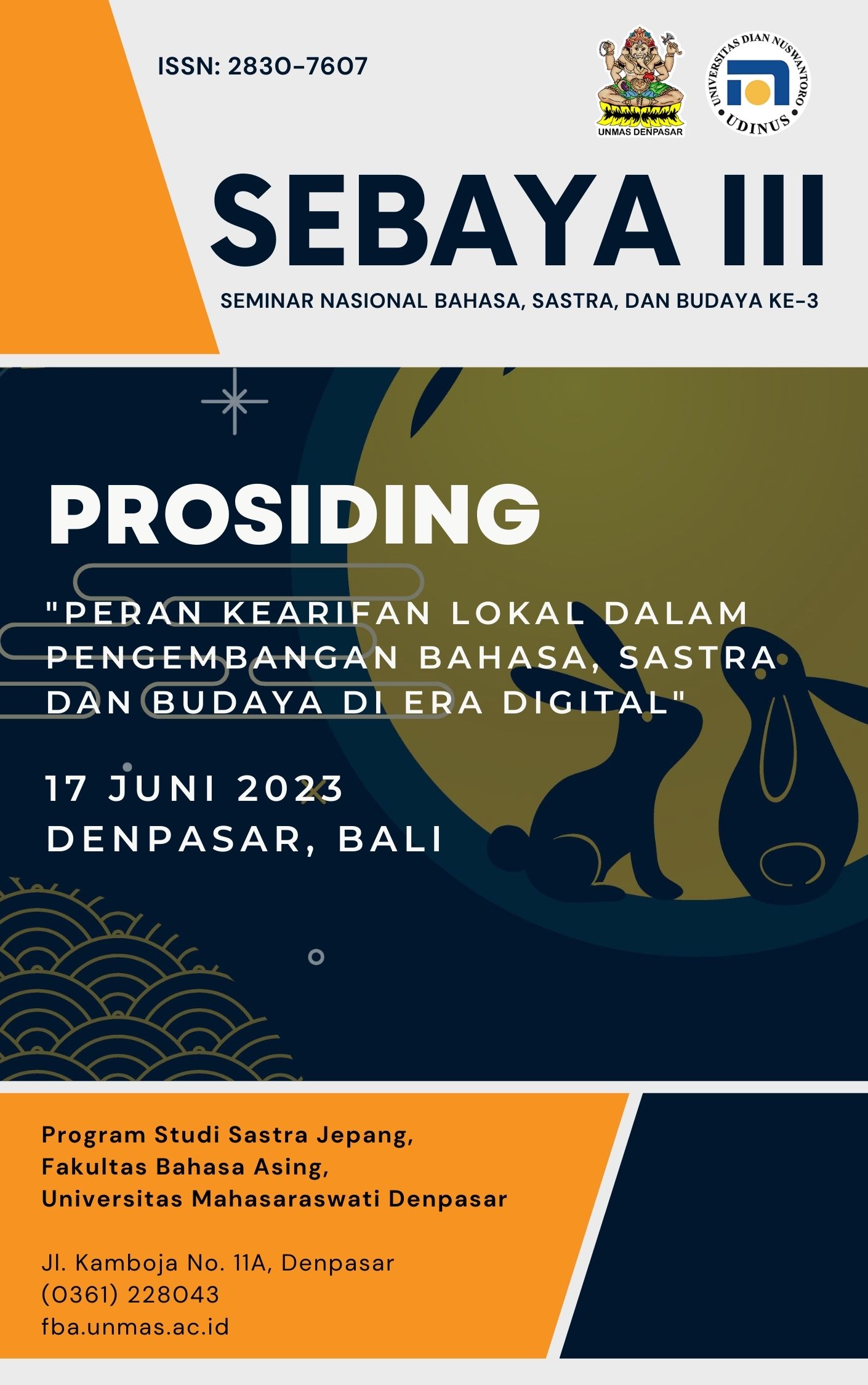IDIOM BAHASA JEPANG YANG MENGGUNAKAN KATA TE
Keywords:
idiom, idiomatic, meaning, teAbstract
This paper aims to describe relationship between lexical meaning and idiomatic meaning in Japanese idioms that use word te. Data were collected from online news websites in Japan, online newspaper Asahi Shinbun, using observing and note-taking methods. Data analysis used a qualitative descriptive method. The results of this paper found the Japanese idiom that uses te, namely the idiom te o kariru, have an adjacent meaning relationship, that is, if someone wants to borrow a hand from other people, it indicates that person who needs help or help from other people. The idiom te ni ireru has an adjacent meaning relationship, that is, if someone has something in their hands, it indicates that person has got something they want. The idiom tega aku has an adjacent meaning relationship, that is, if someone has empty hands or has nothing to do, it indicates that person has leisure time or free time. The idiom te ga tarinai has an adjacent meaning relationship, that is, if someone lacks hands, it indicates that person lacks energy when doing an activity or a job.

